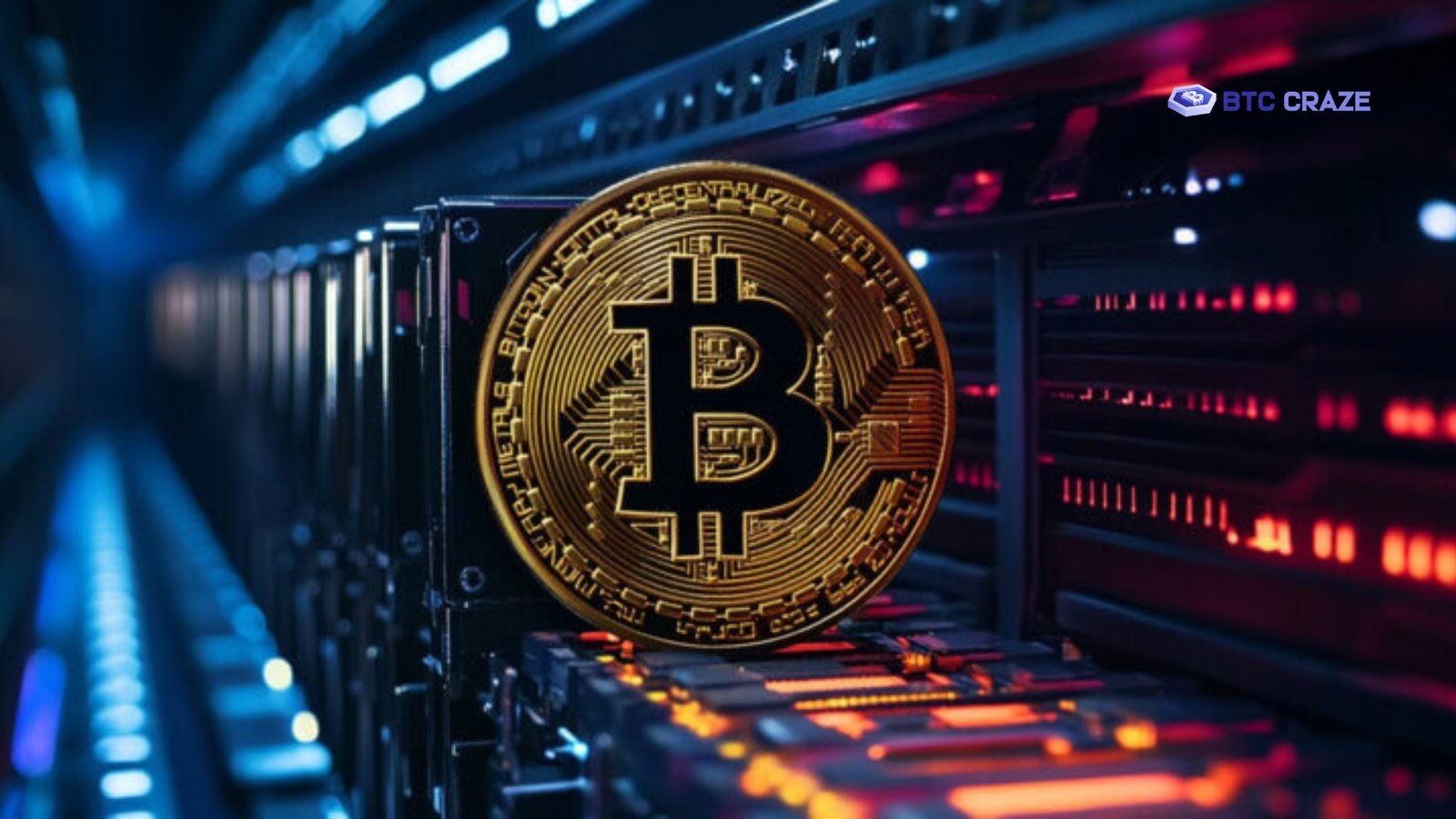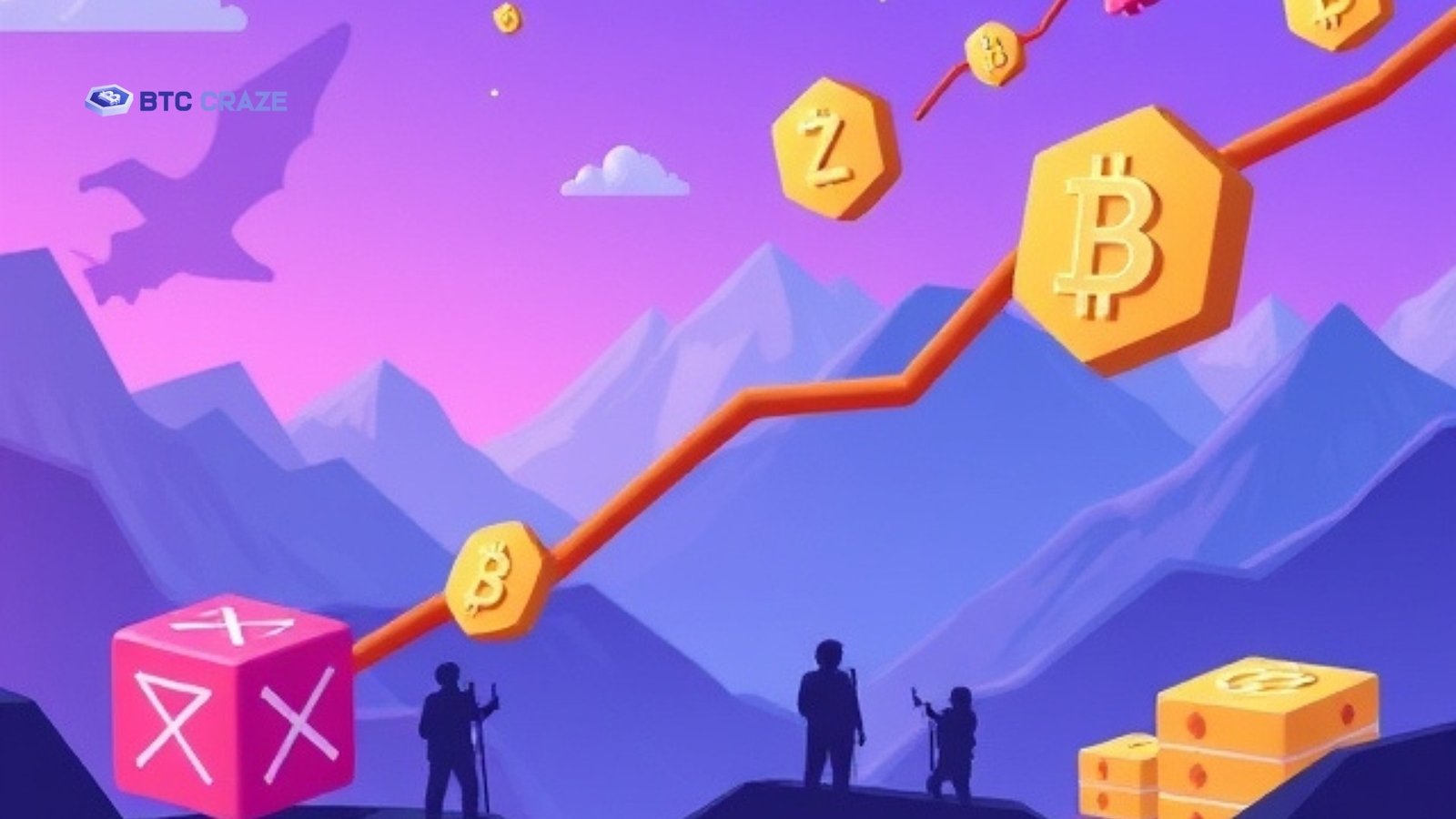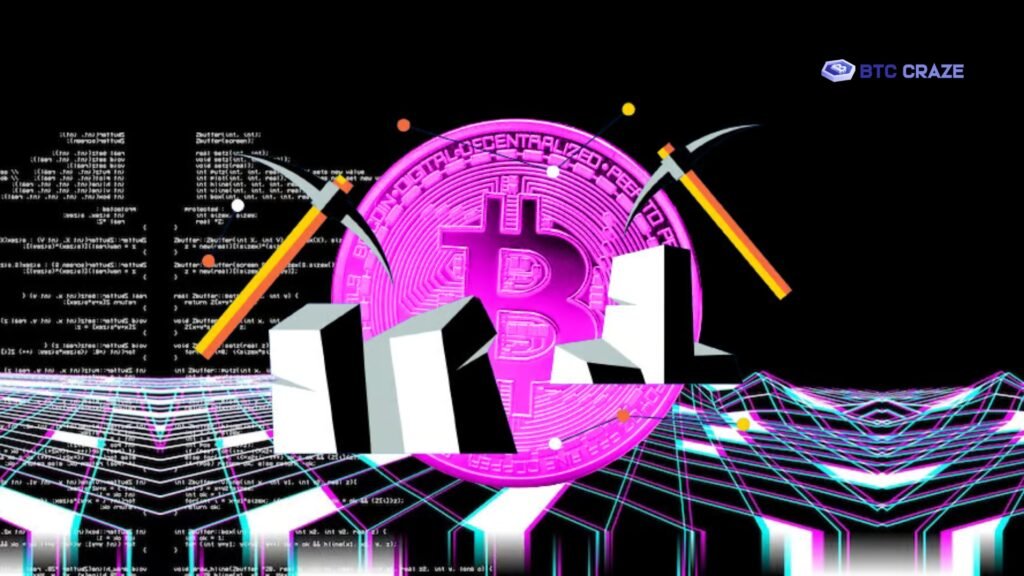Mining Bitcoins, which was once a lucrative venture for early adopters, is now a challenging and less lucrative endeavor. The economics of Bitcoin mining have changed significantly, even though the cryptocurrency itself is still on the rise. One of the main draws of Bitcoin mining is the network’s decentralization, which allows users to earn freshly created Bitcoin by verifying transactions. Bitcoin mining used to be profitable, but that changed when more people joined the network and new technical and economic obstacles emerged. Increasing difficulty, hardware prices, energy consumption, and competition are reasons Bitcoin mining is no longer profitable. These issues are covered in this article.
Rising Mining Difficulty
The steadily rising mining difficulty significantly reduces the profitability of Bitcoin mining today. Roughly every two weeks, the Bitcoin network dynamically changes the difficulty of solving the cryptographic puzzles needed for mining according to the total processing power, or hash rate, that is allocated to the network. The difficulty of keeping the average block time at 10 minutes rises as the number of miners on the network increases.
At the beginning of Bitcoin, mining was easy enough to accomplish with relatively simple computer hardware. This allowed miners to produce large quantities of Bitcoin with little to no initial investment. But now, only very specialized hardware known as ASICs (Application-Specific Integrated Circuits) can mine Bitcoin successfully due to the skyrocketing difficulty of mining. Mining a single block becomes more resource- and time-intensive as difficulty levels grow, cutting overall profitability.

High Hardware Costs
The high cost of specialized mining hardware is another aspect that reduces the profitability of Bitcoin mining. Buying and running specialized ASIC miners, which are made to mine Bitcoin, may be pretty costly. Depending on supply and demand, the price of this equipment might range from a few hundred to several thousand dollars. Further, miners must continually improve their equipment to remain competitive as mining difficulty grows, rendering previous ASIC models useless.
Due to technological innovation, mining hardware can become obsolete very quickly. The necessity for constant updates means that the profitability window could be brief even if a miner invests in top-tier equipment. It becomes increasingly difficult for small or individual miners to make a profit. The ongoing cycle of buying and upgrading hardware raises the overall cost of mining.
Energy Consumption and Electricity Costs
Bitcoin mining uses a lot of power. Miners use a lot of energy to solve tricky cryptographic puzzles. The amount of energy consumed significantly influences profitability in Bitcoin mining operations.
The high cost of electricity makes mining unfeasible in many areas. Countries or locations with relatively inexpensive power, like China, Russia, or even some portions of the United States, tend to attract large-scale mining operations. Nevertheless, worries about the network’s effect on the environment have prompted some nations to ban or regulate mining due to its high energy use.
Especially in regions with higher energy costs, the benefits of mining may not be worth it for smaller operations or individual miners due to the high cost of electricity. This further complicates the already challenging task of turning a profit.
Mining Pool Fees and Competition
Because of the rising mining difficulty, it is now practically hard for individual miners to solve blocks. Most miners join pools to increase their odds of collecting rewards. With the combined computing power of many miners, these pools improve the odds of finding a solution to a block and earning a reward. On the other hand, the costs charged by mining pools might be anything from one percent to three percent of the winnings.
Although mining pools provide more reliable payouts, the associated costs cut into profits. Due to the cutthroat competition in mining pools, every miner gets a pitiful share of the block reward, further reducing individual profits. Due to high competition and pool fees, it is challenging for tiny miners to make a substantial profit.
Halving Events and Decreasing Block Rewards

According to the protocol, there can only ever be 21 million Bitcoins in circulation. To accomplish this, the network goes through “halving” events about once every four years, where the block reward is cut in half. When Bitcoin was initially released, miners used to get 50 Bitcoins for every block they managed to mine. The block reward dropped to 6.25 Bitcoin following the most recent halving in 2020.
As a result of these halving events, miners earn less Bitcoin for the same amount of labor, directly impacting mining profitability. As the block reward decreases, miners must depend more on transaction fees to stay profitable. With mining’s increasing energy usage and hardware expenditures, though, transaction fees might not cover all the costs.
Volatility of Bitcoin’s Price
Bitcoin’s value fluctuates wildly, and volatility can significantly affect the profitability of mining operations.
Even while the expenses of mining (power, gear, etc.) are the same, the value of the rewards miners earn falls as the price of Bitcoin falls. Numerous miners must cease operations or run at a loss during depressed markets. However, due to greater competition among miners, any gains in Bitcoin price during bull markets could be wiped out.
It isn’t easy to forecast mining operations’ long-term profitability due to the unpredictability surrounding Bitcoin’s pricing.
Regulatory Risks and Geopolitical Challenges
Both geopolitical tensions and potential regulatory hurdles affect Bitcoin mining. They are concerned about energy consumption, environmental impact, and illicit activities linked. The cryptocurrency, some countries have implemented limitations or outright bans on Bitcoin mining in the past few years. One example is the global prohibition on cryptocurrency mining that took effect in 2021 in China. The former site of many Bitcoin mining operations.
Mining profitability can be directly affected because miners may be compelled to move their operations or close their doors if these regulatory steps are implemented. Miners face additional threats from many nations’ murky regulatory landscape surrounding cryptocurrencies.
In Summary
In conclusion, there are several reasons why Bitcoin mining has grown much less lucrative over time. Bitcoin mining has become increasingly complex and less profitable due to several factors, including increasing difficulty, high hardware and electricity costs, competition, and regulatory issues. Although large-scale enterprises with access to affordable electricity and state-of-the-art hardware might still profit, individual miners find it harder to justify the expenses. The dynamics of mining will change as the Bitcoin network develops further; profitability will become increasingly elusive for all but the most efficient operations.
Also Read: Halving Bitcoin: Will this uncommon event increase volatility?
[sp_easyaccordion id=”4964″]

